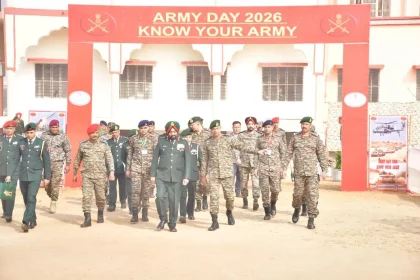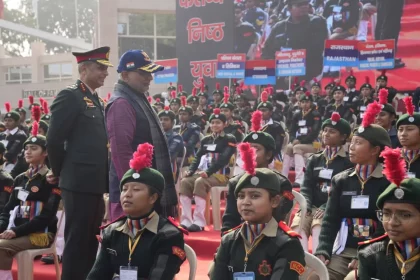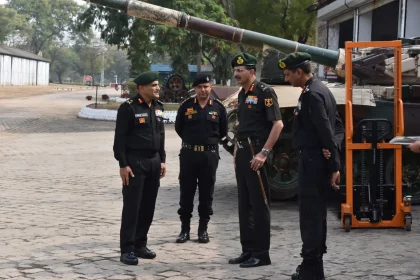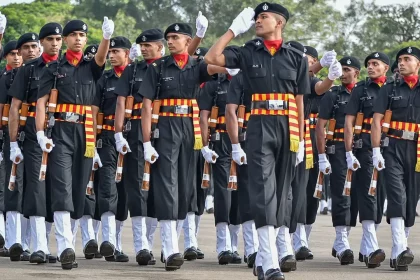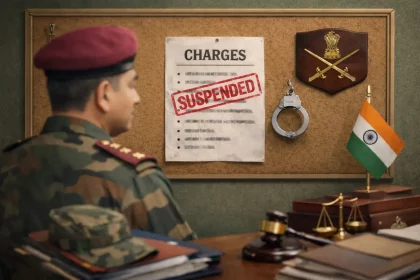Lt Gen Manjinder Singh Reviews Preparations for Army Day Parade 2026 in Jaipur
Army Commander inspects key venues, reviews logistics and coordination, and urges all stakeholders to ensure a grand and flawless Army…
Watch: Indian Army Soldier’s Daughter Gently Reminds Him of His Birthday, Melting Hearts Online
A tender reminder of love behind the uniform, highlighting the unseen sacrifices of soldiers and the quiet strength of their…
Vice-President C. P. Radhakrishnan Inaugurates NCC Republic Day Camp 2026 in New Delhi
Vice-President Hails NCC Cadets’ Role in Nation-Building, Unity and Discipline at the Opening of Republic Day Camp 2026.
Lt Gen Devendra Sharma Reviews Training and Modernisation at Armoured Corps Centre & School, Ahilyanagar
Army Commander Commends Technology-Driven Training, Urges Continuous Innovation to Keep Armoured Corps Agile and Future-Ready.
Indian Army Bars Marriage for Agniveers Seeking Permanent Service
Unmarried status made mandatory during service and selection phase as Army tightens discipline norms for permanent absorption under the Agnipath…
Indian Army Suspends Colonel Facing 12 Charges of Irregularities
Colonel Ashish Singh Mehta placed under 90-day suspension amid allegations of misconduct; disciplinary proceedings underway under Army Act.

